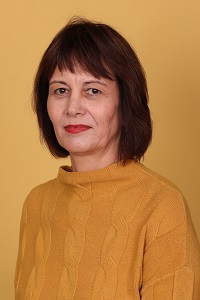Professor Valentina Sandu-Dediu
IAS Fellow at Hatfield College, January-March 2024
Contact Details
- Home Institution email: dediusandu@gmail.com
After graduating in piano and musicology from the Bucharest Conservatory (now the National University of Music - NUMB) in 1990, Professor Sandu-Dediu turned to two main areas of research in the following decades: one interdisciplinary, in which she studied aspects of musical stylistics and rhetoric and proposed a definition of mannerism in musical culture, and another in which she studied the history of post-war music in communist Romania and the ideologies that determined it.
The first category of interests led to a dissertation defended at NUMB and published in 1997 (Stylistic and Symbolic Hypostases of Mannerism in Music), as well as to a series of articles and books, for which the author received various research fellowships at the New Europe College, Institute for Advanced Study Bucharest (1996-1997, 2008), and at the Wissenschaftskolleg zu Berlin (2000), thus familiarising herself with the interdisciplinary environment of these European institutes and with the impulses arising from discussions with colleagues from humanities and social sciences.
The other direction in which Professor Sandu-Dediu is active involves reassessing and reformulating the history of post-war Romanian music. In a first book (Romanian Music between 1944-2000, printed in Bucharest in 2002, with a German version in 2006, Pfau, Saarbrücken), the author explained the attitudes and aesthetic mechanisms of post-war Romanian composers in relation to the prevailing ideologies of socialist realism and communist nationalism. In the following two decades, she continued to investigate aspects of this history by examining either the musicological texts of the time - which distorted the image of certain composers (George Enescu) - or the archives of some institutions (Bucharest Philharmonic). She tried to integrate the phenomena of Romanian music into the overall space of Eastern and South-Eastern Europe and dealt with case studies such as the socialist operetta or the secret protest of some composers against communist censorship. The most recent publication along this path consists of two volumes entitled New Histories of Romanian Music (Bucharest, 2020), edited by Professor Sandu-Dediu and Nicolae Gheorghiță.
Professor Sandu-Dediu received the Prize of the Romanian Academy of Sciences in 1997, the Prize of the Berlin-Brandenburg Academy of Sciences in 2008, as well as numerous prizes from the Union of Composers and Musicologists of Romania (1999, 2010, 2014, 2017, 2020). Since 2014 she is rector of New Europe College Bucharest, Institute of Advanced Study.
In Durham, she will continue to study different cases of nationalism and ideological censorship in the XX century, looking for similarities and differences between music in Romania and in other totalitarian regimes (in the USSR or Nazi Germany). The collaboration with Professor Patrick Zuk and Professor Helen Fenwick in the Understanding Offence project will try to shed light on some issues of the music behind the former Iron Curtain. Certain aspects will emerge through the study of the archives of the former Securitate, but also through Romanian publications from the 1970s and 1990s that strongly promoted the peculiar notion of "protochronism".
Events
IAS Seminar - 29 January 2024 - 1.00 - 2.00pm. IAS Seminar Room, Cosin's Hall, Institute of Advanced Study
Consequences of communist nationalism: Dacian Sanctuaries, Gods and Heroes in Romanian Music of the 1960s and 1980s
Registration is essential. Registration form here.
IAS public lecture - 23 January 2024 - 5.30 - 6.30pm, The Chapel, Hatfield College, Durham University
At the edges of Europe: what do we know about Romanian composers?
Further information here.
Further Information
Links to more information about this Fellow and Fellowship


/prod01/prodbucket01/media/durham-university/research-/research-institutes/institute-of-advanced-study/43486-hero.jpg)
